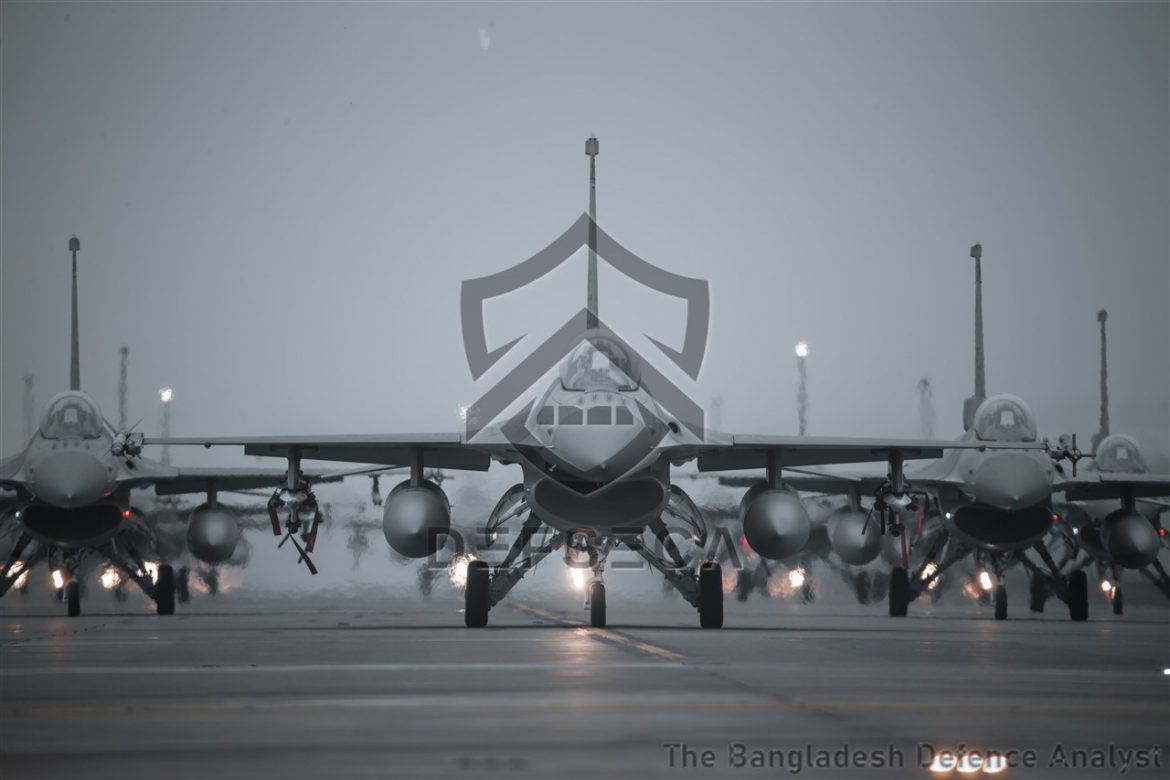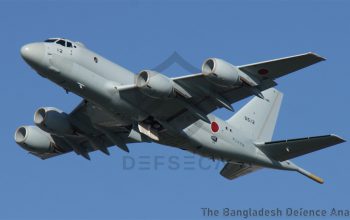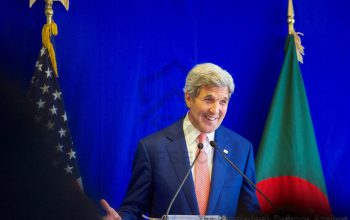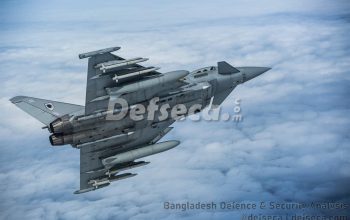The United States has intensified its diplomatic efforts with Bangladesh to provide the South Asian nation with a comprehensive defence package that incorporates the transfer of military hardware, advanced training, technical support, and military aid.
Since the US’s strategic pivot to Asia countries such as Bangladesh became important to their foreign policy engagements. Bangladesh has several advantages over other Asian countries in that it is a young but aspiring democracy, a country located strategically on the Bay of Bengal, one that shares good relations with both India and China. Moreover, it is a country that US wants to showcase to Muslim-majority countries and other nations that economic progress, women’s development and human rights focus can lead to positive outcomes.
Sources in the Foreign Ministry (of Bangladesh) have confirmed the country is prepared to sign the General Security of Military Information Agreement (GSOMIA) framework agreement, which is one of the foundational mechanisms that will allow the United States to transfer/sell advanced military hardware and technologies to the Bangladesh Armed Forces without hindrance.
This important step will pave the way for mutually beneficial outcomes that will assist in modernisation of the Bangladesh Armed Forces and help vitalise the US defence industry in a small way.
Initially, the US will provide military hardware to the Bangladesh Air Force and the Bangladesh Coast Guard in order to address the immediate needs of the Bangladeshi forces.
The sale of at least two squadrons of F-16 Viper (the latest fighter aircraft) along with a full set of armaments, ground handling infrastructure, spares, training, and maintenance support will be negotiated with the Bangladesh Air Force. A defence loan and lower cost of acquisition is being discussed to lessen the burden on the Bangladesh economy as it was one of the concerns of the Bangladesh government about procuring US-made hardware.
The F-16V, which is the newest variant of the F-16 Fighting Falcon is now being touted as a replacement for the F-7MB from China. The replacement of the older Chinese-origin fighter aircraft is not symbolic, it will provide the Bangladesh Air Force with a true force multiplier enabling it to defend the airspace of Bangladesh effectively against the most capable new generation of combat aircraft operated by the air forces of neighbouring countries.
Bangladesh has always maintained it does not want to demonstrate an aggressive military posture against any country but it will ensure a deterrence capability to tackle any untoward situation.
The acquisition of F-16V fighters can be seen in a positive light by defence analysts because it will enhance the operational capabilities of the Bangladesh Air Force, which is currently in the process of ‘Westernisation’ of its fleet at every level.
Initially, the Air Force planned to purchase Eurofighter Typhoon or Rafale multirole combat aircraft from European countries, however that plan has been shelved on the back of the attractive offer received from the United States. To this end, Bangladesh Air Force may seek to procure MRCAs at a later stage from 2026 onwards to replace its MiG-29BM fleet and help raise a new maritime strike squadron.
Besides the F-16V fighters, the US has also offered various types of patrol vessels to the Bangladesh Coast Guard. There was a plan to transfer Hamilton-class cutters to the force, but the BCG may be looking to acquire newer, more capable multi-role cutters from the US besides additional small boats and various other equipment.
The Bangladesh Defence Analyst inquired about military hardware for the Navy and Air Force. The two armed services are mostly interested in procuring medium to smaller unmanned aerial vehicles for the time being. Other equipment if not procured via the Excess Defence Article (EDA) route will be too expensive to acquire and maintain according to the two forces. Moreover, they are satisfied with procuring equipment from Europe for the time being.
Currently, Bangladesh’s economy is the 31st ranked in the world. It is projected the economy will cross the half a trillion-dollar mark in the next fiscal year as a result of continuous growth, overcoming initial pandemic woes. The country is expected to become the 24th largest economy in the world by 2030.
Notable among Bangladesh’s contributions to the international space is its involvement in the UN-led peacekeeping missions in order 40 countries with approximately 170,000 peacekeepers sent so far.
The encouraging progress of Bangladesh has espoused the interest of Western countries to cooperate in the security field as well.




